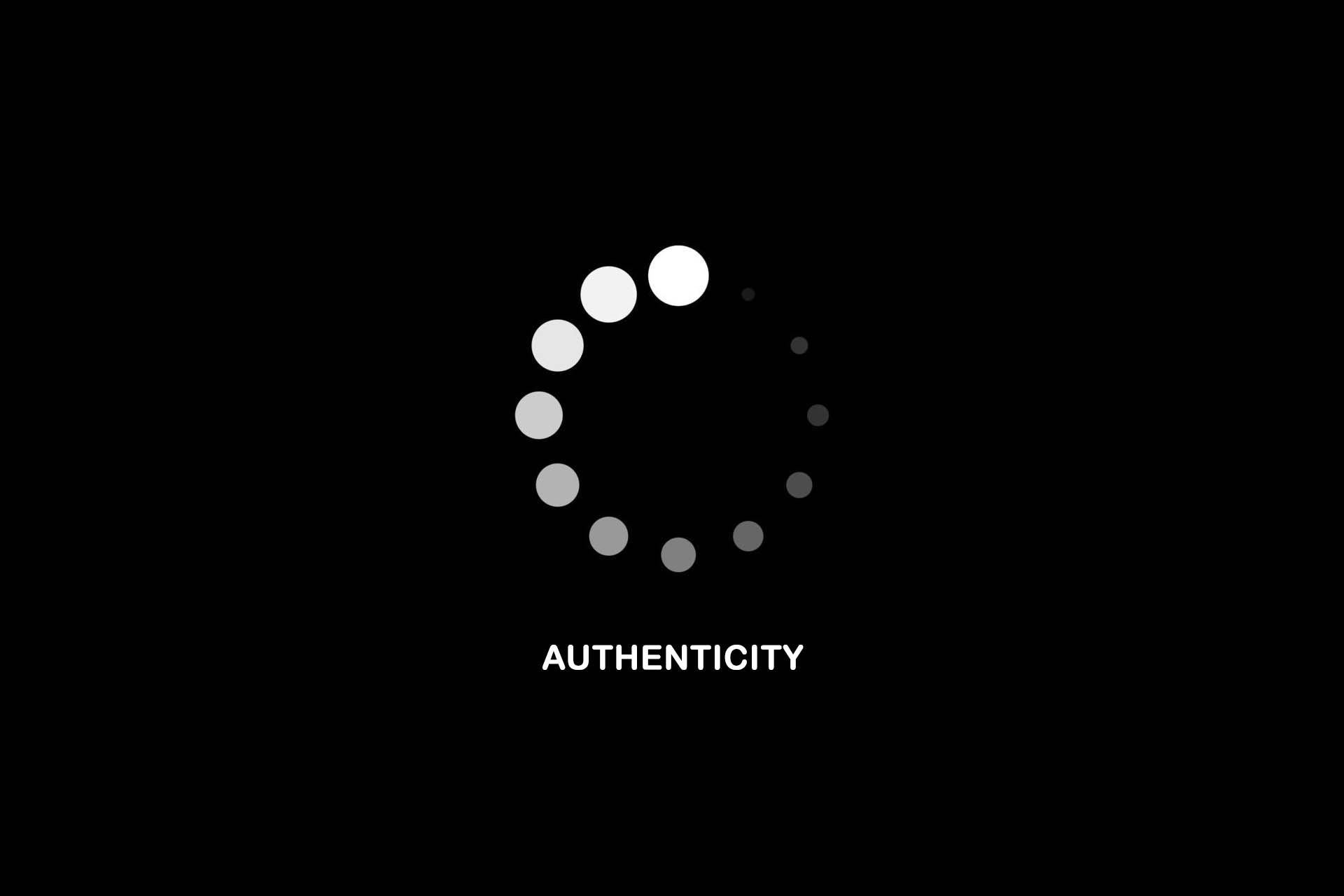I am (not) a personal brand!
An impulse for reflection: Personal brands and their importance for companies.
Anyone who is active on social media platforms will probably find numerous postings promoting the topic of personal branding. It’s about building up personal marks and visibility, about reach and authenticity, about tips, tricks and successes. I’d like to understand the topic a little more concretely, so I asked my network, “Am I a personal brand?” (The answer is at the end of the article.) And I had an independent exchange with Heiko Roessel, Dr Tanja Bernsau and Alex Rammlmair about personal branding.
What is a personal brand, Heiko Roessel?
Heiko Roessel¹ is an entrepreneur, systemic management consultant and lecturer for service management at the HTW in Aalen. He is an expert in positioning services and defining target groups.
Heiko, what is a personal brand?
I would interpret personal brand literally. As a character brand. This distinguishes it from a corporate brand and a product brand. Accordingly, every person is a personal brand if they have to or want to sell themselves somewhere and somehow. This applies to the self-employed, but also to employees.
The term personal brand is used especially for solo self-employed people. Here, often no distinction is made between the personal brand and the corporate brand. But this is a missed opportunity. If the entire brand is related to one person, there is no way to give the company its own face. I think it is advantageous here to give the person as well as the company and the product their own brand. This increases diversity and variance.
The danger with personal brands, as I have observed, is that the person presents himself as too important. In the final analysis, however, it is the product that decides whether the buyers buy.
In summary, I understand a personal brand is a marketing tool, not a strategy.
What is the importance of personal brands for companies?
In my opinion, personal brands are of secondary importance for “real companies”. In a company, individuals should be subordinate to the company. Accordingly, a corporate brand or a company brand should be formed, if at all. However, many companies define themselves “bottom up” through their products.
A company should ensure that individual employees can be replaced without jeopardising the meaning and purpose of the company as a whole. Therefore, in my opinion, it cannot be in the interest of a company to establish personal brands. This even applies to the chairman, the management or the founder.
I distinguish personal brands from companies that keep the name of their founders. These do not necessarily have to be personal brands. Nice examples are Carl Zeiss, Robert Bosch, Deichmann, Fielmann or Hugo Boss. All of them are perceived as companies or company brands, even though they bear the name of their founders. I think it is important to consider this fine distinction when establishing a brand.
If a company is a personal enterprise or specifically a solo self-employment, the personal brand can play a role. In my opinion, however, one should bear in mind that the customer first looks for products and offers. Only when these offers seem to make sense to him will he consider the vision of the company or the personal brand behind it.
For me, it is therefore important that both companies and solo self-employed people understand their products as a decisive factor and as a strategy for market access and that both the personal brand and the company brand are only complementary marketing measures.
What is a personal brand, Dr Tanja Bernsau?
Dr Tanja Bernsau² is the owner of the Wiesbaden-based Social Media Manufaktur and advises self-employed people and entrepreneurs on the strategic planning and design of their online presences with websites and social media channels.
Tanja, what is a personal brand?
A personal brand is an important concept for me as a (solo) self-employed person with a B2B service offering. At first glance, it is simply the name with which I go to market. It’s the name under which people know and find me and associate me with a certain service or product. But there is much more behind it and it is the result of a process in which I have clarified myself and my offer.
The personal brand is the result of a previous positioning. In addition to the question of the specific offer, I also clarified the question of the target group I want to reach. It is the question of how I can present myself as uniquely as possible among the multitude of other providers in order to anchor myself in the memory of potential customers. In the end, it doesn’t matter whether my USP is that I use a unique method, whether I focus on a more or less pointed target group or whether I put my personality centre stage – the goal is always to make myself distinguishable from others. Because quite honestly: very few B2B service providers set up their own business with an offer that doesn’t even exist yet. We all have competitors when we earn our living as coaches, consultants or trainers. Only with a solid positioning can I become a personal brand and only then will I be tangible for my target group.
Only when I have done my homework here can I start thinking about my external image. How do I communicate my brand personality clearly and distinctly to my target group? Now I can decide which marketing and acquisition tools I want to use. Starting with the corporate design, i.e. the visual recognisability, to the messages I want to convey, but also – and this is where the component “personal” comes into play – what personality my brand should have.
As a self-employed person, this is often connected to the person behind it, to the human being. And now comes the exciting and often misunderstood aspect: authenticity. How personally do I present myself to the market as a self-employed person in order to be authentic? For me, the most important demarcation here is the private sphere. Especially on social media platforms, people quickly feel the need to show private things about themselves in order to convey authenticity. But in my opinion, that doesn’t belong in a business context – and usually doesn’t interest any of my business contacts. At the very least, it doesn’t leave a professional impression of me and what I have to offer if I discuss family problems or the results of my last colonoscopy in a LinkedIn post. Distance is definitely called for.
The other extreme in the attempt to show personality lies in (exaggerated) self-promotion. Pure self-dramatisation is not necessarily an expression of authenticity if the posts are true to the motto “my house, my luxury car, my workation under palm trees”. “Look how successful I am” – an understandable desire to want to show that, but in practice more an expression of personal blending than personal branding.
Personally, I stick to selective authenticity as Voltaire said: “I don’t have to show everything that is true about me. But everything I show of myself should be true.”
What is the importance of personal brands for companies?
As a solo self-employed person, I don’t have a detailed insight into the marketing strategy of companies, but if I were in their shoes, I would consider whether corresponding programmes to develop personal brands make sense. At a time when employee retention and visibility in the marketplace are becoming increasingly important, personal branding can be an important tool. Personal branding also makes companies more tangible and closer for applicants and potential customers, and it anchors itself more strongly in the memory of the counterpart. In extreme cases, there is then “a face” of the company, think of Elon Musk or Steve Jobs, for example, who are immediately associated with their companies. Ultimately, however, every employee who communicates with the outside world (for example, in sales or as a recruiter) can become visible and noticeable through personal branding.
What is a personal brand, Alex Rammlmair?
Alex Rammlmair³ helps IT companies build growth in a targeted and strategic way. He is a podcaster, book author and expert in value pricing.
Alex, do you see a difference between personal brands and companies that carry the name of their founders in the company name?
I like the idea that a brand is not owned by the person who registered the name and perhaps a logo for it – but by those who are interested in the brand.
Because the value of a brand actually depends 100 % on what everyone else associates with it. If many people like the brand, the value is high. If there are no fans, the value is low. Quality of the company or the products, innovative strength, mission, profits … all irrelevant.
So in 6 months, today’s ultra-hip youth fashion label will only be good for identifying those who haven’t yet realised that something completely different is now the order of the day. The fashion label itself has not done anything wrong or different than before, has not changed its values or its message. There was no scandal, shitstorm or bad balance sheet. It’s just that someone else has emerged who has taken over the favour of young people.
With this perspective, the idea that the company owns the brand sounds rather strange; after all, everyone else can do what they want with it (except copy it).
In fact, brands’ efforts to directly influence their value and your brand message often seem out of place. Similar to a teenager who thinks he or she can spread a good image of him or herself with snappy sayings, intellectual posturing or an extra portion of coolness. All those who watch the spectacle are rather embarrassed.
Mineral oil companies that pretend to be sustainable, corporate dinosaurs that want to hang the innovation label around their necks or household appliance manufacturers that would like to “belong to the family” have a similar effect. Thanks, but no thanks. We understand that you would like to have this image, but unfortunately you don’t have it and we won’t give it to you either. Despite your billions in advertising.
What does that mean for personal brands?
Probably the same, except that the whole thing is inextricably linked to a person. That makes the brand more difficult to pass on. Someone else can’t just take over something like that with a contract and a referral – and that’s exactly what makes personal brands perhaps a little more consistent and credible.
The logic is: if a person moves to another company, most things about that person remain the same. If a German start-up is bought by a Chinese company, on the other hand, a lot changes.
This often makes personal brands more attractive than their corporate counterparts:
- Elon Musk has over 125 million followers on Twitter, Tesla has 19 million.
- Bill Gates has 36 million followers on Linkedin, Microsoft has 19 million.
In the SME sector – among my clients – it is usually similar. The founders, owners or CEOs usually have 20 times as many contacts as their company.
And among start-ups, Dave Gerhart’s book “founder brand” popularised the idea that it is often more effective to give the founders a stage than the company. Many successful founders today are better known than what they founded.
And then there are the freelancers, many of whom try to give an independent company an identity with a name and a logo.
As a rule, this works badly. We employ a good dozen freelancers ourselves. I know almost all of them by name – but I wouldn’t know the name of their registered company.
I know the attempt from my own early days. I feared being “too small” as a one-man-show and therefore preferred to represent a “company”. Of course, everyone sees through the trick immediately and those for whom you are too small don’t take you on anyway.
Whether “personal” or “corporate” – that may depend on the situation.
We experience in everyday life that both work:
“Good news. We have been able to win over the CFO of XY (who nobody knows personally)”: Company brand radiates to person.
Or: “Have you heard? XY has founded a new company (whose name nobody is interested in)”: A person’s brand radiates off the company.
And what advice do you therefore give your clients today?
“Worry less about your market and more about your products, services and customers. Work in such a way that others talk about them. And then take as a brand what your customers and business partners take when they talk about you: The company – or the person behind it.”
Because in the end, they own your brand anyway.
Notes:
[1] You can find more information about Heiko Roessel on his website and on LinkedIn. On the t2informatik blog, he has published articles on positioning self-employed people and the Paris Model. Here you can find an overview.
[2] You can find more information about Dr Tanja Bernsau on her website and on LinkedIn. In the t2informatik blog she has published a post about introverts in marketing.
[3] You can find more information on Alex Rammlmair on his website and LinkedIn. In t2informatik he has published posts about long-term goals, software developers failing to apply for jobs and the move away from agile software development. Here you can find an overview.
“Am I a personal brand?”, I had asked my network. 70% voted yes, 30% voted nope. Personally, I would say 100%: No! And that’s perfectly fine!
If you like the article or want to discuss it, feel free to share it with your network.
Michael Schenkel has published further articles in the t2informatik blog, including

Michael Schenkel
Head of Marketing, t2informatik GmbH
Michael Schenkel has a heart for marketing - so it is fitting that he is responsible for marketing at t2informatik. He likes to blog, likes a change of perspective and tries to offer useful information - e.g. here in the blog - at a time when there is a lot of talk about people's decreasing attention span. If you feel like it, arrange to meet him for a coffee and a piece of cake; he will certainly look forward to it!


